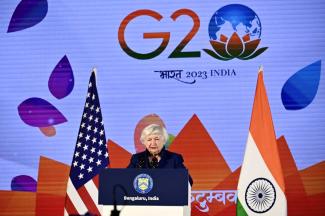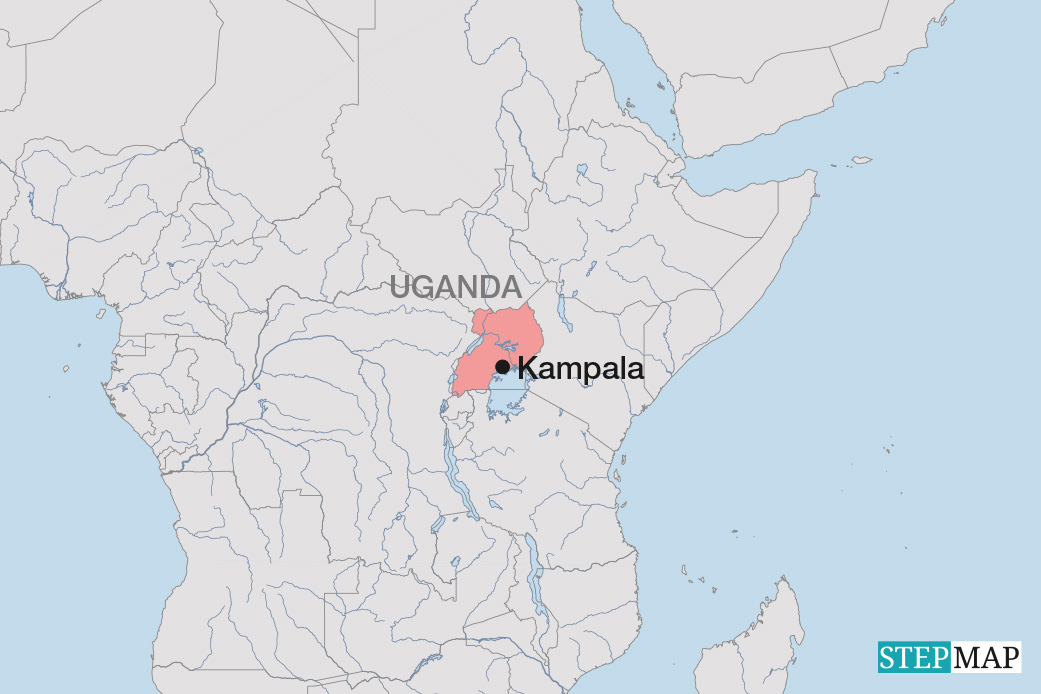Fiscal space
Economies in limbo

The G20 Common Framework on Debt Treatment (CF) has so far not delivered convincing results. This is dangerous, given that many low and middle-income countries are stuck in debt crises, so they cannot adequately rise to daunting challenges, from worsening poverty to climate adaptation.
To improve matters, the CF must be enhanced, as I argued on this platform previously. Crucial issues include that debt restructuring must:
- happen faster,
- be more generous and
- apply not only to countries with low-income status, but to middle-income countries in stress as well.
In other words, the CF must become more flexible and allow for more creative solutions.
Fast and determined action against looming disasters in high-income countries
While countries with comparatively poor capacities struggle for years with unresolved financial issues, high-income countries act fast and in unorthodox ways to resolve credit-related problems of their own (see box 1). The USA and Switzerland managed to prevent serious banking crises in March. The assets in play far exceeded what would be needed to forgive, for example, Zambia’s outstanding debt.
Zambia has been in default since 2020. The country’s debt amounts to $ 31 billion. This figure pales relative to the asset position of the failed banks in the USA. Together, Silicon Valley Bank, Signature Bank and First Republic had some $ 500 billion on their books. US authorities’ direct spending to get a grip on the problem amounted to about $ 32 billion. Government institutions did well to stomp out the fires before they spread. In the same sense, Swiss authorities did a good job of managing the failure of Credit Suisse (with assets worth more than $ 600 billion).
It is, of course, comparatively easy for a government with ample fiscal space to administer a national policy with determination. It is much more difficult to achieve and implement multilateral consensus on sovereign debt issues.
What makes things particularly difficult is that China is now the most important bilateral creditor country. It disagrees with the approach taken by the Paris Club, the informal umbrella organisation of western creditor nations.
Quite obviously, however, international policymakers do not consider the sovereign-debt crisis of low-income and middle-income countries to be as dangerous as the failures of the above-mentioned banks. Top leaders do not see a systemic risk that might upend the global financial system.
Humankind’s common future in peril
They miss an important point. The various sovereign-debt crises may not cause immediate global disruption, but they do undermine humankind’s common future. The longer a debt-crisis lingers on, the longer it will take the government concerned to tackle urgent challenges.
An economy hobbled by debt issues can neither address domestic problems effectively, nor contribute to tackling global challenges sustainably. Those challenges include global heating and the dwindling of biodiversity as well as worsening poverty and intensifying inequality. Moreover, sovereign debt crises can undermine a country’s political stability and result in security problems with international implications.
The longer heavily indebted economies stay in limbo, the worse their problems become. Indisputably necessary action would therefore be cheaper today than it will prove in the future.
According to the International Monetary Fund (IMF), Congo, Grenada, Malawi, Mozambique, São Tomé and Príncipe, Somalia, Sudan, Zimbabwe and Zambia were in debt distress at the end of February. Another 27 countries were at high risk of debt insolvency, 26 countries at moderate risk and seven countries at low risk.
Kristalina Georgieva, the managing director of the IMF, has called for urgent action. Instead, we are observing further procrastination.
Since 2020, the CF has only delivered a single debt restructuring, for Chad. In the cases of Zambia, Ghana and Ethiopia, negotiations have stalled entirely or are moving far too slow, as David Malpass, the retiring president of the World Bank, has acknowledged.
For some countries, liquidity support is enough. Those with oversized debt
burdens, however, need actual restructuring, which means that a share of the debt is forgiven. If creditors focus only on liquidity solutions, they are likely to see a succession of debt crises, with indebted governments using fresh bail-out money to service existing loans. As the bail-out money must eventually be repaid too, the debt burden keeps growing.
Insufficient, but useful
Though the CF remains insufficient, it is a useful foundation to build on. It is the only multilateral mechanism for tackling serious sovereign-debt issues. To regain sovereign-debt stability, the CF might offer instruments such as liquidity support, debt-service suspension, debt restructuring and, in theory, total debt relief.
While only the G20 governments and multilateral institutions have made a commitment to the CF, its great potential is to bring all types of creditors to the table, whether they are public or private-sector institutions, whether they are from established economic powers or large emerging markets. In close cooperation, these highly diverse parties should provide credit facilities and debt relief to nations in trouble. They should do so according to a set of pre-established principles (regarding solidarity, consensus, information sharing, case-by-case decision-making, conditionality and comparability of treatment).
So far, the international community lacks both a bankruptcy mechanism for sovereign debt and a supranational authority for enforcing debt restructuring even if some creditors object to it. Accordingly, sovereign- debt restructuring was not only very difficult in the past, it also remained ad-hoc and piecemeal. Examples were the Brady Plan in 1989, the Heavily Indebted Poor Countries Initiative (HIPC) in 1996 and the Multilateral Debt Relief Initiative (MDRI) in 2006.
Enhancing the CF
Quite clearly, the CF must be enhanced. It must pave the way to a bankruptcy mechanism and its enforcement. Several lessons from the recent banking turmoil in high-income countries should be heeded:
- It makes sense to act fast and determinedly, which, of course, will require international political will.
- Debt relief should be substantial or might not be enough to fix the problem.
- Re-achieving debt-sustainability for currently overburdened countries will require additional fresh money as well as the design and execution of bold policies to reform economies and foster growth.
- It will also require broad creditor participation and coordination.
- A case-by-case solution is imperative. Failure cannot be an option because the social and economic costs are plainly too high.
A new financial architecture can well arise from individual interventions. Good practice, at this point, matters more than elaborate theories.
The good news is that an innovative Global Sovereign Debt Roundtable can make a difference this year. It is chaired by the IMF, the World Bank and the G20 presidency (currently India). It is expected to push all parties involved. It should contribute to speeding up discussions and building consensus.
Breakthroughs are required for many issues, from technical definitions to timelines and transparency requirements. Clear rules must be defined for how debt stress is assessed and how the burdens of restructuring are shared.
In the short run, effective restructuring deals must be agreed for Zambia, Ethiopia and Ghana. Substantial CF success would send a promising message to the world: debt stress is being taken seriously, and it is not intractable.
José Siaba Serrate is an economist at the University of Buenos Aires and at the University of the Centre for Macroeconomic Study (UCEMA), a private university in Buenos Aires. He is also a member of the Argentine Council for International Relations (CARI).
josesiaba@hotmail.com














